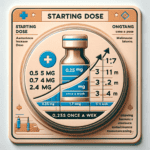
Are There Weight Loss Pills That Work?
Are There Weight Loss Pills That Work? In today’s society, the desire for quick and easy weight loss solutions has led to the rise in popularity of weight loss pills. These pills promise to help individuals shed unwanted pounds without the need for strict diets or intense exercise regimens.
With the increasing number of people struggling with weight issues, it is no wonder that weight loss pills have become a booming industry.
The appeal of weight loss pills lies in their convenience and promise of rapid results. Many individuals are looking for a quick fix to their weight problems, and these pills seem to offer just that.
They provide a sense of hope and optimism, making individuals believe that they can achieve their desired weight without much effort.
The Science Behind Weight Loss Pills: How Do They Work?
Weight loss pills work through various mechanisms to help individuals lose weight. One common mechanism is by increasing metabolism. These pills contain ingredients that can boost the body’s metabolic rate, leading to increased calorie burning and fat loss.
Another mechanism is appetite suppression. Some weight loss pills contain ingredients that can help reduce hunger and cravings, making it easier for individuals to stick to a calorie-restricted diet. By curbing appetite, these pills can help individuals consume fewer calories and promote weight loss.
Some weight loss pills also work by inhibiting the absorption of dietary fat. These pills contain ingredients that bind to fat molecules in the digestive system, preventing their absorption into the body. This can lead to reduced calorie intake and weight loss over time.
The Different Types of Weight Loss Pills: Appetite Suppressants, Fat Burners, and More
Weight loss pills can be categorized into different types based on their mechanisms of action. One common type is appetite suppressants. These pills work by reducing hunger and cravings, making it easier for individuals to stick to a calorie-restricted diet. Examples of appetite suppressants include phentermine and liraglutide.
Another type of weight loss pills is fat burners. These pills contain ingredients that can increase metabolism and promote fat burning. They often contain stimulants such as caffeine or green tea extract, which can boost energy levels and enhance calorie burning. Examples of fat burners include caffeine, green tea extract, and forskolin.
There are also weight loss pills that work by inhibiting the absorption of dietary fat. These pills contain ingredients such as orlistat, which can bind to fat molecules in the digestive system and prevent their absorption into the body. This can lead to reduced calorie intake and weight loss over time.
The Pros and Cons of Weight Loss Pills: Are They Safe and Effective?
Weight loss pills can offer several potential benefits for individuals looking to lose weight. They can provide a convenient and accessible option for those who struggle with traditional weight loss methods such as diet and exercise. These pills can also provide a sense of motivation and hope, as individuals see quick results on the scale.
However, weight loss pills also come with risks and limitations. They are not a magic solution and should not be relied upon as the sole method for weight loss. These pills should be used in conjunction with a healthy diet and regular exercise for optimal results. Additionally, weight loss pills can have side effects and may not be suitable for everyone. It is important to consult with a healthcare professional before starting any weight loss pill regimen.
The Role of Diet and Exercise in Weight Loss

Healthy Foods
While weight loss pills can provide some assistance in shedding pounds, they cannot replace a healthy lifestyle. Diet and exercise play a crucial role in long-term weight loss and overall health. Weight loss pills should be seen as a supplement to a balanced diet and regular exercise routine, rather than a replacement.
A healthy diet is essential for weight loss as it provides the necessary nutrients while keeping calorie intake in check. A diet rich in fruits, vegetables, lean proteins, and whole grains can help individuals achieve and maintain a healthy weight. Regular exercise is also important as it helps burn calories, build muscle, and improve overall fitness levels.
Weight loss pills may provide a temporary solution, but they cannot address the underlying issues that contribute to weight gain. It is important to adopt healthy habits and make sustainable lifestyle changes for long-term success.
The Importance of Consulting a Doctor Before Taking Weight Loss Pills
Before starting any weight loss pill regimen, it is crucial to consult with a healthcare professional. They can assess your individual needs and determine if weight loss pills are a suitable option for you. They can also provide personalized advice and guidance based on your medical history and current health status.
Weight loss pills can interact with other medications and may not be safe for individuals with certain medical conditions. A healthcare professional can evaluate your specific situation and provide recommendations that are tailored to your needs. They can also monitor your progress and make adjustments as needed.
It is important to remember that weight loss pills are not a one-size-fits-all solution. Consulting with a healthcare professional can help ensure that you are making informed decisions about your weight loss journey.
The Risks and Side Effects
Weight loss pills can come with potential risks and side effects that individuals should be aware of. Common side effects include nausea, diarrhea, constipation, and stomach discomfort. Some weight loss pills can also increase heart rate and blood pressure, which can be dangerous for individuals with cardiovascular conditions.
There is also a risk of dependency and abuse with certain weight loss pills. Some pills contain stimulants that can be addictive and may lead to dependence. It is important to use weight loss pills as directed and under the supervision of a healthcare professional to minimize these risks.
Additionally, there is a risk of using unregulated or counterfeit weight loss pills. These products may contain harmful ingredients or incorrect dosages, which can pose serious health risks. It is important to purchase weight loss pills from reputable sources and to consult with a healthcare professional before starting any new supplement.
The Truth About Over-the-Counter vs. Prescription

Pros and Cons of Weight Loss Pills
Weight loss pills can be categorized into two main types: over-the-counter (OTC) and prescription. OTC weight loss pills are readily available without a prescription and can be purchased at pharmacies or online. Prescription weight loss pills, on the other hand, require a prescription from a healthcare professional and are typically used for individuals with obesity or weight-related medical conditions.
OTC weight loss pills are generally considered safe when used as directed. However, they may not be as effective as prescription options and may have milder effects. Prescription weight loss pills are typically more potent and may have stronger side effects. They are usually reserved for individuals with significant weight issues or medical conditions related to obesity.
It is important to consult with a healthcare professional to determine which type of weight loss pill is appropriate for you. They can assess your individual needs and provide recommendations based on your specific situation.
The Placebo Effect: Do They Really Work or Is It All in Your Head?
The placebo effect plays a significant role in the effectiveness of weight loss pills. The placebo effect refers to the phenomenon where individuals experience positive effects simply because they believe they are receiving a treatment, even if the treatment itself has no active ingredients.
Studies have shown that individuals who believe they are taking weight loss pills tend to experience greater weight loss compared to those who do not believe they are taking anything. This suggests that the belief in the effectiveness of weight loss pills can have a significant impact on their actual effectiveness.
However, it is important to note that weight loss pills do have active ingredients that can contribute to weight loss. The placebo effect should not be the sole basis for the effectiveness of weight loss pills. It is crucial to understand the science behind these pills and to make informed decisions based on evidence and expert advice.
Conclusion: Making Informed Decisions
In conclusion, weight loss pills have gained popularity due to their promise of quick and easy weight loss. However, it is important to approach these pills with caution and to make informed decisions based on individual needs and medical advice.
Weight loss pills can provide some assistance in shedding pounds, but they should not be relied upon as the sole method for weight loss. A balanced diet, regular exercise, and personalized medical advice are essential for long-term weight loss and overall health.
Consulting with a healthcare professional is crucial before starting any weight loss pill regimen. They can assess your individual needs, provide personalized advice, and monitor your progress. It is important to understand the risks and benefits of weight loss pills and to make decisions that align with your goals and overall well-being.






